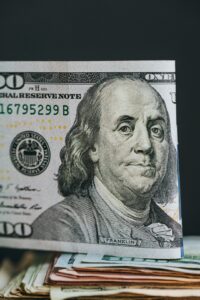The Role of Capital Forex in Global Economies and Markets
Introduction
In today’s interconnected world, the foreign exchange market, or forex, plays a crucial role in global economies and markets. Forex involves the trading of different currencies, enabling individuals, corporations, and governments to exchange one currency for another. This market operates 24 hours a day, five days a week, and is the largest financial market in the world, with daily trading volumes exceeding $6 trillion. Understanding the role of capital forex in global economies and markets is essential for anyone interested in international trade, investment, and economic stability.
Facilitating International Trade
One of the primary functions of capital forex is to facilitate international trade. When businesses engage in cross-border transactions, they often need to exchange their local currency for the currency of the country they are conducting business with. For example, if a US company wants to import goods from Japan, they need to convert their US dollars into Japanese yen to make the payment. Forex provides a platform for these currency exchanges, ensuring smooth and efficient trade between nations.
Exchange Rate Determination
The forex market is also responsible for determining exchange rates between currencies. Exchange rates play a vital role in international trade as they affect the competitiveness of a country’s exports and imports. When demand for a particular currency increases, its value strengthens, leading to a higher exchange rate. Conversely, when demand decreases, the currency weakens, resulting in a lower exchange rate. These fluctuations in exchange rates impact the profitability of businesses engaged in foreign trade, making it essential for them to monitor and manage currency risks.
Investment Opportunities
Capital forex also presents numerous investment opportunities. Individuals and institutional investors can speculate on currency movements and profit from exchange rate fluctuations. This is often done through leveraged trading, where investors can control large positions in the market with a relatively small amount of capital. Forex trading offers the advantage of high liquidity, allowing investors to enter and exit positions quickly. However, it is important to note that forex trading carries significant risks and requires a thorough understanding of market dynamics and risk management techniques.
Hedging against Currency Risks
Companies engaged in international trade often face currency risks due to exchange rate fluctuations. For example, a US company that expects to receive payment in euros in six months may be concerned about the potential depreciation of the euro during that period. To mitigate this risk, the company can enter into a forex hedging contract, such as a forward contract or options contract, to lock in a specific exchange rate. By doing so, the company ensures that it will receive a predetermined amount of dollars regardless of the future exchange rate. Forex hedging provides stability and certainty, allowing businesses to focus on their core operations without worrying about currency volatility.
Impacting Global Monetary Policy
The forex market also has a significant impact on global monetary policy. Central banks, such as the Federal Reserve in the United States or the European Central Bank, often intervene in the forex market to influence their domestic currency’s value. Central banks can buy or sell currencies to stabilize exchange rates or achieve certain economic objectives. For example, if a country wants to boost its exports, it may deliberately weaken its currency to make its goods more competitive in international markets. These interventions can have far-reaching effects on global economies and financial markets, making forex an essential component in understanding macroeconomic trends.
Conclusion
Capital forex plays a crucial role in global economies and markets. It facilitates international trade, determines exchange rates, provides investment opportunities, helps companies hedge against currency risks, and impacts global monetary policy. Understanding the dynamics of forex is essential for individuals, businesses, and governments involved in international trade and finance. The forex market’s immense size and liquidity make it a vital pillar of the global financial system, contributing to economic stability and growth worldwide.






